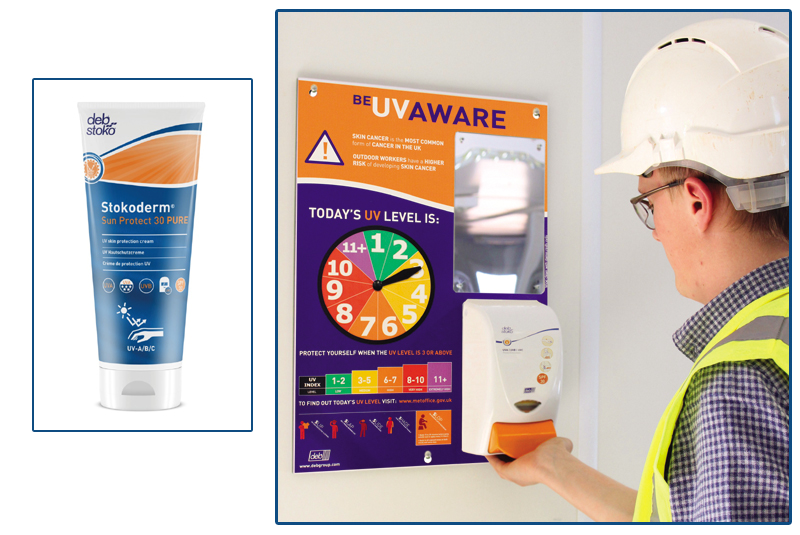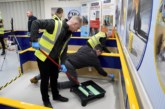
Paul Jakeway, Marketing Director of the Deb Group, is urging merchants and their customers to become more ‘UV aware’ to help minimise the risk of skin cancer.
Skin cancer is the most common form of cancer, with over 100,000 new cases diagnosed in the UK each year. Shockingly, six people die from skin cancer a day in the UK — a higher death toll than Australia, a country with a naturally warmer climate.
What is particularly frustrating when examining UK statistics is that 90% of skin cancer deaths could have been prevented if the proper precautions had been taken. The risk that sun exposure poses must be better understood, allowing people to protect themselves against it.
When it comes to being UV aware, a lack of proper education is the downfall for many. For example, it is often wrongly assumed that the sun has to be shining for your skin to be damaged, when in fact 100% of UVA rays pass through clouds, meaning sun protection is crucial even on overcast days. It is also wrongly assumed that one application of sun cream is enough to withstand an entire day’s sun exposure, when it must be liberally reapplied every two to three hours.
Anyone who spends a large portion of their day outside is at risk of skin cancer. Indeed, five people from outdoor professions such as landscapers, builders and roofers are diagnosed with skin cancer each day due to sun exposure, yet a recent study showed that two thirds of these workers do not realise they are at risk of getting skin cancer whilst at work.
Interestingly, when such workers are on holiday, 90% apply sun cream but this drops to just 59% when it comes to their everyday work.
Education and protection
Better protection for our outdoor workers against this life-threatening and highly preventable disease is crucial. Awareness of the UV Index — a daily forecast developed by the World Health Organisation which identifies the strength of UV radiation from the sun at a particular time — is a start. When the index reaches three, a minimum SPF30 sun cream with broad spectrum UVA protection is essential.
Despite the HSE guidelines outlining that UV radiation should be considered an occupational hazard for those who work outdoors, and that employers should provide adequate training and supervision, it has been revealed by the Institution of Safety and Health (IOSH) that, for example, 70% of workers in large UK construction companies have not had any training on the risks of working in the sun.
Protective products can be taken into stock and sold to your trade customers, whilst by implementing training and placing sun cream dispensers and educational material across the workplace, your own employees — many of whom will work outside for prolonged periods — will be more informed and aware of the risks that the sun can carry.
For more information visit www.debgroup.com/uk
The Deb Group provides a range of skin care products and hand sanitising solutions. It offers items designed to minimise the risks from sun exposure including individual sun creams and wall-mounted dispensers in the Deb Stoko and Stokoderm ranges in addition to a number of brochures, leaflets and POS materials as part of a campaign to generate awareness of why active sun protection is so important.









